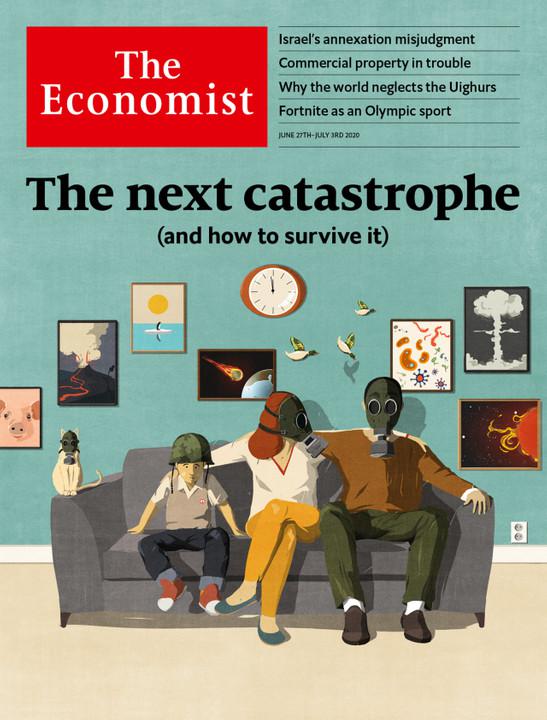
The Economist front page
CSER's research - and catastrophic and existential risks more broadly - were featured in a front page story in the Economist. Haydn Belfield and Rumtin Sepasspour were interviewed for the story.
AI in a crisis needs ethics with urgency
AI can help the COVID-19 response, but rapidly scaling up uses of AI carries its own risks. The urgency of a crisis doesn’t mean we can neglect ethics, but must find ways to do ethics with urgency - as CSER researchers argue in a new Nature Machine Intelligence article.
Response to EU White Paper on AI
The submission mainly focuses on mandatory conformity assessments for high-risk AI applications carried out by independent testing centres. Our researchers' key recommendation is to keep this proposed framework and not water it down.
Video: The Existential Risk of Climate Change
Dr Luke Kemp spoke on a Oxford Climate Society panel with David Wallace-Wells, author of The Uninhabitable Earth; Zeke Hausfather, Director of Climate and Energy at the Breakthrough Institute; and Kate Guy, Senior Research Fellow with the Center for Climate and Security.
Lord Martin Rees public appearances
Lord Rees spoke on Being a Scientist at the Cheltenham Science Festival (video, see also this article) and was interviewed on Sky News on After The Pandemic: How will life and society change?
11 Global Catastrophic Risk Papers
Each month, The Existential Risk Research Assessment (TERRA) uses a unique machine-learning model to predict papers most relevant to existential risk or global catastrophic risk.
Updates from our partners
Interdisciplinary pre-print on COVID-19
Led by FHI researchers, it finds schools might play surprisingly large role in transmission and several nonpharmaceutical interventions are effective at reducing transmission while putting low burden on population
READ MORE
FLI Podcast
Steven Pinker and Stuart Russell on the Foundations, Benefits, and Possible Existential Threat of AI
